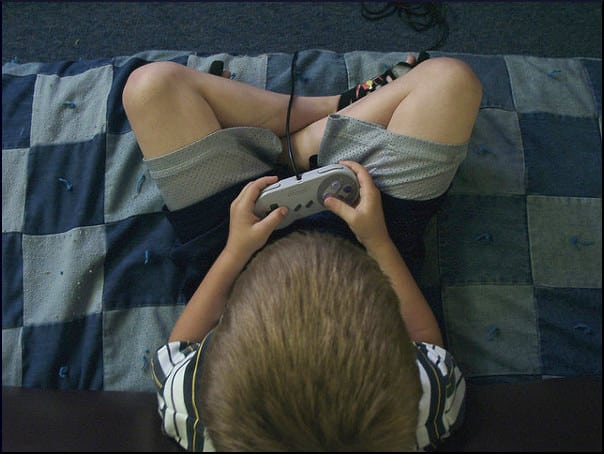
In celebration of Childhood Obesity Awareness Month, we are reviewing a vast array of hints and tips available to parents who wish to prevent obesity. Currently, the subjects are screen time and light pollution, and their effects on the sleep patterns of children and teens.
These topics are major advice magnets, and people have a lot to say. As it turns out, nothing is carved in stone, but enough work has been done to provide evidence for suspicion.
There may never be an unimpeachably provable cause-and-effect relationship between nocturnal light exposure and overweight/obesity. Any responsible research paper on a multi-factorial problem like fat retention includes, in one of the later paragraphs, a caveat against making unwarranted assumptions. In order to definitively nail the problem, more research is always a splendid idea.
Now for the cheapest tip of the day. The notion that sleeping in a totally dark room could help to keep a person’s weight down might sound a bit fanciful. However, relative to some other variables, a room’s ambient light is relatively cheap and easy to control, even for ordinary people at home. So why not give it a go?
That role model thing again
Dr. Pretlow always highlights the importance of good example-setting by fathers and mothers. This principle was confirmed by a study from the University of Illinois, which indicated that “more parental sleep is related to more child sleep, which is related to decreased child obesity.”
Nobody, of any age, functions well on a sleep shortage. For young children the additional issue is that their brains are still forming, and there could be permanent effects.
One recommendation for both children and adults involves behavior that is easily modeled and reinforced on a daily basis, namely, unplugging. This is the turning off of all electronic gadgets at least half an hour before bedtime, along with the implementation of a “calming, predictable routine” like a warm bath or a story-reading time.
Try stealth. Rather than making some draconian rule like “No more TV from now on,” figure out how to gradually reduce screen time. Treat the TV with intention, rather than randomness. Here is a behavior that is really painless to model without making a big deal out of it. It’s just a habit that, if followed consistently, will make the best kind of impression — the unconscious kind.
The behavior you want to demonstrate is that of “no channel-surfing.” Watch a specific, chosen show from start to finish, and then turn off the television. When misused, as aural wallpaper, it too easily lures people into sitting still.
Educational psychologist Dr. Michele Borba offers an enormous compendium of hints titled “How to Wean Kids from TV and Video Games and Back into L.I.F.E.
Is he kidding with this? No.
In general, Greg Seaman, who often writes on parenting-related topics, is against confrontational or authoritarian methods of curbing behavior. He offers a game-reduction tip that sounds counter-intuitive at first: Jump in and play along!
We quote the entire eloquent paragraph:
Let your child teach you one of their favorite video games and give it a try. You may find the game instructive, challenging, or deplorable. In any case, you’re showing your child that you are open-minded and willing to try something new. After all, this is what you’re asking of your child in having them reduce time spent on video games. There’s a better chance your child will listen to your suggestions when you’ve shown a willingness to understand the appeal of these games.
Wow! That is some outside-the-box thinking, and it just might work!
Another of his suggestions is borrowed from the food diary idea. Many people, when asked to keep an accurate record of everything they eat for a week, are astonished. They can’t believe they really ate that much, but there it all is, in black and white.
Seaman proposes asking the child to keep a log of gaming time, which could lead to some thoughts or discussions of how quickly the hours add up, and of possible alternative uses of time that might, ultimately, be more satisfying. Again, the parent’s method is not coercive, but suggestive.
In fact, this is a fertile opportunity for a parent to set a good example. Choose a pastime that you could live without — maybe the political argument sessions on Twitter — and make a project of tracking your own behavior, and pondering how that time could be put to better use. Share your thoughts with the child. What comes up might surprise you.
Your responses and feedback are welcome!
Source: “Sleeping in a room with too much light linked to obesity,” BBC.com, 05/30/14
Source: “Parent and child must get enough sleep to protect against child obesity,” ScienceDaily.com, 06/09/14
Source: “7 Ways to Wean your Child off Video Games,” EarthEasy.com, 02/08/11
Source: “TV in Child’s Bedroom Tied to Weight Gain,” HealthDay.com, 03/03/14
Photo credit: David Kessler (plasticrevolver) via Visualhunt/CC BY-SA

 FAQs and Media Requests:
FAQs and Media Requests: 











